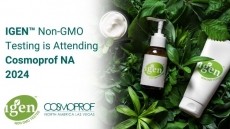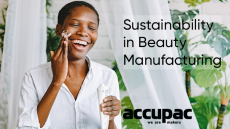Australia battles on in defence of tea tree oil
can convince EU authorities over the safety of tea tree oil for use
in cosmetics products. The announcement comes following a European
Commission report asking for proof that it is safe for topical
application, reports Simon Pitman.
At the beginning of this year a European Commission scientific panel called on cosmetic companies to prove that tea tree oil is safe following studies indicating that the oil can prove an irritant to certain skin types. The report also showed that the ingredient's efficacy depletes rapidly upon exposure to sunlight and that it becomes more volatile.
Christopher Dean, ATTI head of the technical and safety committee said that only a very small amount of the oil was needed to make it effective in cosmetic applications. Speaking to Australian press he said he was confident that one to three percent was more than enough for most formulations.
The association said that a number of complaints in Norway had been made about tea tree oil, which had sparked off the demands to prove its safety. But the industry says it is spending millions of dollars in an effort to prove that the oil is safe to use as an ingredient in cosmetics.
Currently the EU is threatening to block cosmetic products with more than one percent tea tree oil in the formulation unless scientific evidence can prove its safety by the end of the year.
Last month ATTI said that its first research, carried out through the Australian Government research corporation, RIRDC, again showed that Australian tea tree oil has no mutagenic potential (in accordance with the international protocol OECD474).
"These results were in agreement with previous studies which showed that Australian tea tree oil was non mutagenic when tested using the internationally recognised Ames protocolm," a statement from the association said.
Currently tea tree oil is not regulated by the European Commission for cosmetic applications, which is why the scientific panel has undertaken its research work.
The essential oil is a complex mixture of compounds obtained by distillation from the leaves and twigs of the Australian tea tree. Currently the quality of the infusion is regulated by the Australian Standard and the German Drugs Code as to the level of individual ingredients.
Tea tree oil is widely used to treat acne, eczema, skin infections such as herpes and minor wounds, warts and insect bites, due mainly to its widely known antimicrobial properties.
The product is sold in highly concentrated forms as an essential oil, but is also included in a variety of cosmetic products, including skincare and body products, toothpaste, mouthwash and aromatherapy treatments. Many of the leading cosmetic companies, such as The Body Shop, use tea tree oil in a variety of the skin care products. This means that the European Commission's ultimatum is likely to cause consternation in the industry, with many of the leading players likely to step up their testing of the ingredient in the coming months.
Colipa, the European Cosmetic Toilety and Perfumery Association recommends that neat tea tree oil is never used on the skin and that skin care products should not contain more than 1 per cent of the ingredient.
The Body Shop has already admitted that some of its skin care products do contain more than 1 per cent tea tree oil, but says that its own thorough testing procedures have already been completed on the product range that uses the oil.













